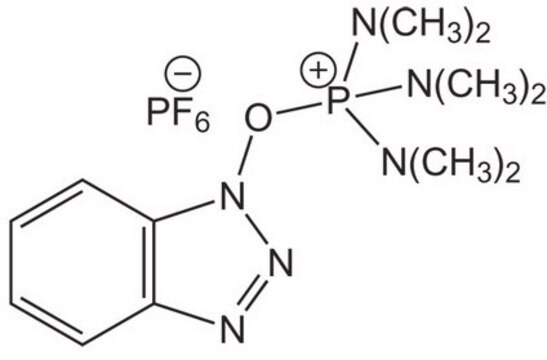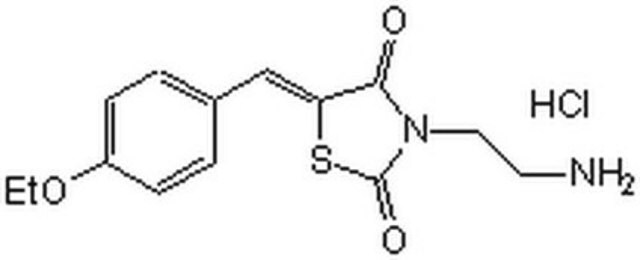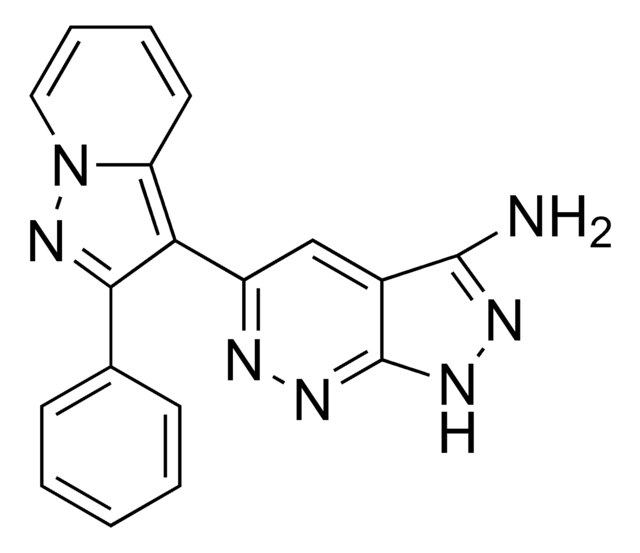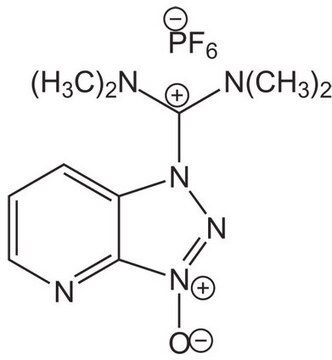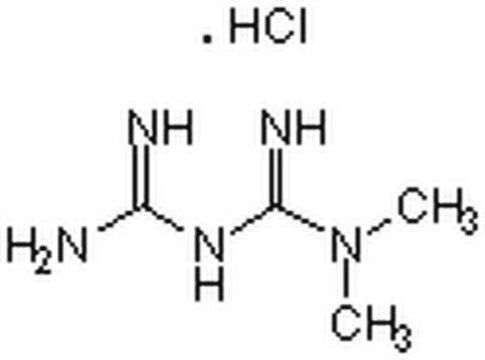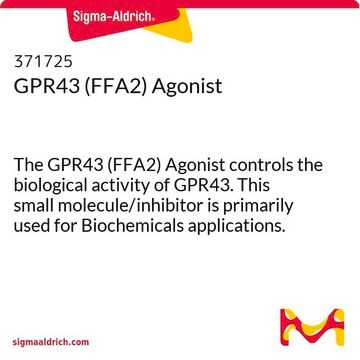SML1994
BOP
>97% (HPLC)
Synonym(s):
N-(Benzenesulfonyl)-L-prolyl-L-O-(1-pyrrolidinylcarbonyl)tyrosine sodium salt
Sign Into View Organizational & Contract Pricing
All Photos(1)
About This Item
Empirical Formula (Hill Notation):
C25H28N3NaO7S
CAS Number:
Molecular Weight:
537.56
UNSPSC Code:
12352200
NACRES:
NA.77
Recommended Products
Assay
>97% (HPLC)
form
powder
storage condition
desiccated
color
white to beige
solubility
H2O: 2 mg/mL, clear (warmed)
storage temp.
2-8°C
Biochem/physiol Actions
BOP (N-(Benzenesulfonyl)-L-prolyl-L-O-(1-pyrrolidinylcarbonyl)tyrosine sodium salt) is a potent and selective dual inhibitor of integrins alpha-4 beta-1 (α4β1) and alpha-9 beta-1 (α9β1) with Kd values in the picomolar range. BOP has been shown to preferentially mobilize hematopoietic stem cells (HSCs) and progenitors and to act synergistically with AMD3100.
Storage Class Code
11 - Combustible Solids
WGK
WGK 3
Flash Point(F)
Not applicable
Flash Point(C)
Not applicable
Certificates of Analysis (COA)
Search for Certificates of Analysis (COA) by entering the products Lot/Batch Number. Lot and Batch Numbers can be found on a product’s label following the words ‘Lot’ or ‘Batch’.
Already Own This Product?
Find documentation for the products that you have recently purchased in the Document Library.
R Blake Pepinsky et al.
Biochemistry, 41(22), 7125-7141 (2002-05-30)
Integrins alpha9beta1 and alpha4beta1 form a distinct structural class, but while alpha4beta1 has been subjected to extensive study, alpha9beta1 remains poorly characterized. We have used the small molecule N-(benzenesulfonyl)-(L)-prolyl-(L)-O-(1-pyrrolidinylcarbonyl)tyrosine (3) to investigate the biochemical properties of alpha9beta1 and directly compare
Benjamin Cao et al.
Nature communications, 7, 11007-11007 (2016-03-16)
The inherent disadvantages of using granulocyte colony-stimulating factor (G-CSF) for hematopoietic stem cell (HSC) mobilization have driven efforts to identify alternate strategies based on single doses of small molecules. Here, we show targeting α9β1/α4β1 integrins with a single dose of
Our team of scientists has experience in all areas of research including Life Science, Material Science, Chemical Synthesis, Chromatography, Analytical and many others.
Contact Technical Service